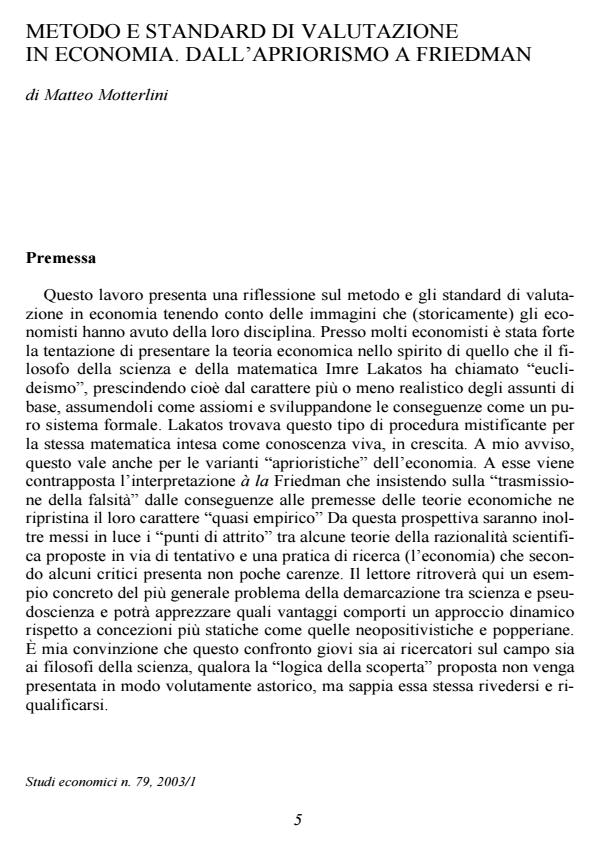Metodo e standard di valutazione in economia. Dall'apriorismo a Friedman
Titolo Rivista STUDI ECONOMICI
Autori/Curatori Matteo Motterlini
Anno di pubblicazione 1 Fascicolo 2003/79
Lingua Italiano Numero pagine 29 P. Dimensione file 220 KB
DOI
Il DOI è il codice a barre della proprietà intellettuale: per saperne di più
clicca qui
Qui sotto puoi vedere in anteprima la prima pagina di questo articolo.
Se questo articolo ti interessa, lo puoi acquistare (e scaricare in formato pdf) seguendo le facili indicazioni per acquistare il download credit. Acquista Download Credits per scaricare questo Articolo in formato PDF

FrancoAngeli è membro della Publishers International Linking Association, Inc (PILA), associazione indipendente e non profit per facilitare (attraverso i servizi tecnologici implementati da CrossRef.org) l’accesso degli studiosi ai contenuti digitali nelle pubblicazioni professionali e scientifiche.
This paper aims at reconstructing the standards of evaluation of economic theory by focus-ing on the views that economists themselves (historically) have held of their own field of en-quiry: from empirical apriorism (N.W. Senior, Mill, Cairnes) to Austrian apriorism (Robbins, Von Mises), from Hutchison’s methodological critique of the Neoclassical assumptions to Machlup’s verificationist approach, and up to Milton Friedman’s influential and sui generis pragmatism. By comparing abstract theories of scientific rationality (Philosophy of Science) with the concrete research practice (Economics) the paper provides a more specific case for the general problem of the demarcation between science and pseudoscience (it further suggests the relative merits of a dynamical approach compared to the Neopositivist or Popperian static one). It is argued that a comparison of this kind can be fruitful for both economists and the philoso-phers in as much as the advocated ‘logic of scientific discovery’ is not presented in an a-historical and a-critical fashion but rather it encourages revisions and improvements.
Matteo Motterlini, Metodo e standard di valutazione in economia. Dall'apriorismo a Friedman in "STUDI ECONOMICI " 79/2003, pp , DOI: